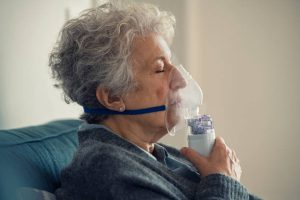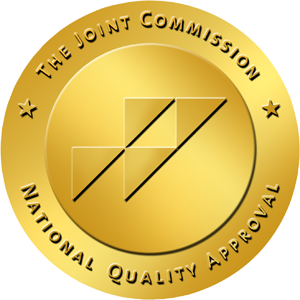Managing COPD with Carmichael’s: Insights, Treatments, and Tips for Better Breathing
 Living with Chronic Obstructive Pulmonary Disease (COPD) can be challenging, but with the right approach, management, and support, many individuals can maintain an active and fulfilling lifestyle. COPD, which affects over 12 million Americans, is a progressive lung disease that makes breathing difficult due to airflow obstruction. This article covers vital aspects of COPD, including symptoms, causes, treatment options, and lifestyle tips that can improve the quality of life for those living with the condition.
Living with Chronic Obstructive Pulmonary Disease (COPD) can be challenging, but with the right approach, management, and support, many individuals can maintain an active and fulfilling lifestyle. COPD, which affects over 12 million Americans, is a progressive lung disease that makes breathing difficult due to airflow obstruction. This article covers vital aspects of COPD, including symptoms, causes, treatment options, and lifestyle tips that can improve the quality of life for those living with the condition.
What is COPD?
COPD is an umbrella term that typically refers to chronic lung conditions such as emphysema and chronic bronchitis. These diseases damage the lungs and make it harder to breathe over time. Unfortunately, early stages of COPD may go unnoticed, as initial symptoms can be mild and mistaken for normal aging. The disease often advances gradually, making it important to recognize symptoms early and seek professional medical advice.
Recognizing Symptoms of COPD
Early detection of COPD can make a significant difference in how well the disease is managed. Common symptoms include:
- Increased breathlessness, especially during physical activities
- Chronic coughing with excess mucus production
- Wheezing when breathing
- Chest tightness and discomfort
These symptoms tend to worsen as the disease progresses. If you or a loved one experiences any of these symptoms, especially with a history of smoking or exposure to lung irritants, consulting a healthcare professional is essential.
Primary Causes of COPD
Most cases of COPD are directly linked to smoking tobacco products, including cigarettes, cigars, and pipes. Continuous exposure to secondhand smoke can also contribute to the disease. Other factors include prolonged exposure to air pollutants, occupational chemicals and dust, and genetics.
Effective Treatments for COPD
While there is no cure for COPD, effective treatments are available to manage symptoms, slow disease progression, and improve quality of life.
- Quitting Smoking: This is a critical step for those diagnosed with COPD. Quitting smoking can slow the disease and prevent further lung damage. Avoiding secondhand smoke and other pollutants is equally important.
- Medication: Doctors may prescribe bronchodilators (inhalers) and corticosteroids to relieve symptoms and reduce inflammation. In more severe cases, oral steroids or even antibiotics (for infections) may be needed.
- Oxygen Therapy: Oxygen therapy delivers additional oxygen to the lungs, improving symptoms and overall energy levels. Common devices include oxygen concentrators and portable oxygen cylinders. These devices are usually prescribed based on the individual’s oxygen levels and needs. A doctor’s prescription is required for this therapy, as oxygen therapy must be carefully managed.
- Surgery: In advanced cases where medications and therapy are not sufficient, surgery, including lung volume reduction or, in extreme cases, lung transplants, may be considered.
- Pulmonary Rehabilitation Programs: Pulmonary rehab combines education, exercise, nutrition advice, and breathing techniques tailored to each patient. This program helps improve lung function, reduces symptoms, and enhances physical endurance.
Oxygen Therapy for COPD Patients
Oxygen therapy can be life-changing for people with COPD, especially for those with low blood oxygen levels. Carmichael’s offers a range of home oxygen therapy equipment tailored to individual needs, including:
- Oxygen Concentrators: These devices filter oxygen from the air, delivering it through a tube to a nasal cannula or mask. They are generally used at home and do not require refilling.
- Portable Oxygen Cylinders: Unlike concentrators, oxygen cylinders contain a fixed amount of pressurized oxygen, so they need to be refilled or replaced periodically. Portable cylinders are often used for travel or activities outside the home.
- Nebulizers and Inhalers: Nebulizers turn medication into a mist for easier inhalation, while inhalers are portable devices that deliver medication directly to the lungs. Both are essential tools for managing COPD and other respiratory conditions like asthma.
For oxygen therapy, always consult with a respiratory therapist or healthcare provider to ensure proper equipment usage and maintenance.
Lifestyle Tips for Managing COPD
In addition to medical treatments, adopting a few lifestyle habits can make living with COPD more manageable:
- Exercise Regularly. Regular physical activity is crucial for lung health; it strengthens the heart and muscles and helps the body use oxygen more efficiently. For people with COPD, walking, cycling, and stretching and other low-impact exercises are beneficial. Always consult your doctor before starting an exercise routine and avoid intense workouts if you’re using oxygen therapy equipment.
- Prioritize Lung Health. COPD can progress faster when the lungs are exposed to stressors. Protect your lungs by avoiding air pollutants, such as secondhand smoke and industrial chemicals. Indoors, maintain good ventilation, test for radon, and avoid harsh cleaning products with strong fumes.
- Maintain Good Hygiene. COPD patients are more susceptible to respiratory infections, which can worsen symptoms. Practice good hygiene by washing hands regularly, avoiding crowded places during flu season, and considering annual vaccinations for flu and pneumonia with your healthcare provider.
- Mindful Breathing Techniques. Breathing exercises can help increase oxygen intake and make breathing easier. These techniques are often practiced in pulmonary rehab and can be done at home.
COPD Management and Support
With a combination of medical treatment, oxygen therapy, exercise, and lifestyle adjustments, individuals with COPD can significantly improve their quality of life. Access to professional support, such as respiratory therapists and pulmonary rehabilitation programs, helps patients to manage their condition effectively.
For those seeking more information on oxygen therapy equipment, such as oxygen concentrators, nebulizers, or portable oxygen cylinders, Carmichael’s can provide access to the necessary resources and guidance. Contact us for any respiratory therapy equipment products and supplies needs for COPD management.




 Accredited/Certified by The Joint Commission
Accredited/Certified by The Joint Commission